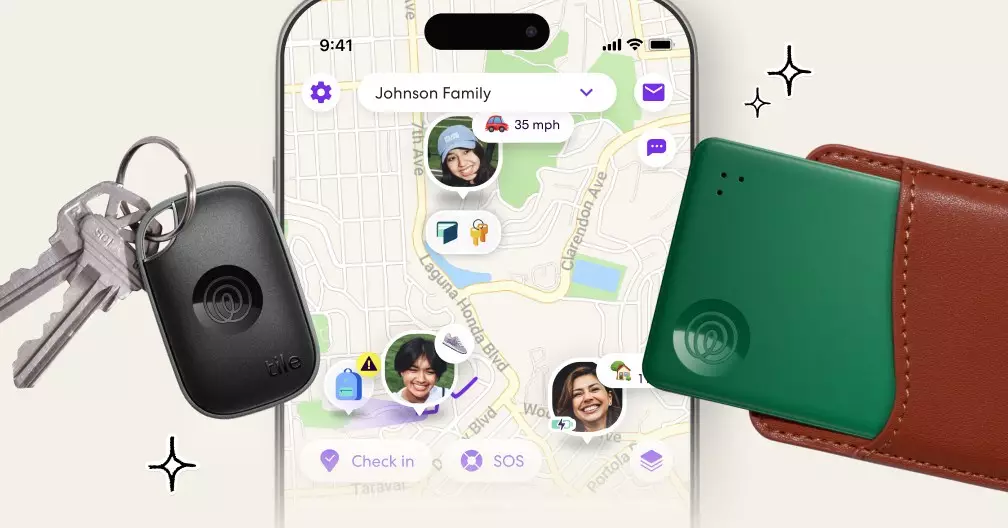The landscape of family safety and location tracking is rapidly transforming, with Life360 taking significant strides in the realm of Bluetooth tracking technology. Following the acquisition of Tile’s Bluetooth tracking business for a staggering $205 million in 2022, Life360 has strategically enhanced its app to seamlessly incorporate Bluetooth trackers. This evolution not only reflects the increasing importance of location services for families but also underscores a broader trend in consumer technology where convenience and integrated functionalities play pivotal roles in enhancing user experience.
Revolutionizing the User Experience
Previously, Tile users found themselves needing to juggle multiple applications to manage their gadgets efficiently. However, the recent announcement from Life360 signifies a profound shift towards a unified experience where both people and belongings can be monitored within a single application. The ability to set up and manage Bluetooth trackers directly within the Life360 app eliminates unnecessary complexity, allowing users to focus on what matters most—safeguarding their loved ones and belongings.
With new functionalities such as automatic push notifications that alert users if they inadvertently leave an item behind, the Life360 app becomes a proactive tool against the all-too-common problem of misplacing personal items. Moreover, the inclusion of location history for tracked items adds an essential dimension to the tracking experience, transforming how families interact with their environment and each other.
Your Family, Center Stage
Life360 markets itself as a family-centric application, offering features that extend beyond mere location tracking. By fostering a sense of community within designated “Circles,” the app allows families and close friends to share their real-time locations, thereby enhancing communication and safety. The reduction of mundane back-and-forth communications regarding arrivals and departures fundamentally reshapes the dynamic within families, relieving tension and strengthening connections.
In an era where parents often express concern over their children’s safety, Life360’s capabilities—such as crash detection and roadside assistance—underscore a commitment to holistic family safety. While these features are invaluable for families, they do invite deeper questions about privacy and data management, especially for parents of teenagers.
The Balance Between Convenience and Privacy
While the symmetry of convenience presented by Life360 is compelling, the question of privacy cannot be overlooked. Life360 emphasizes its adherence to privacy standards, stating that it now does not sell precise user data. However, the loophole lies in its policy of potentially sharing data with business partners, which raises red flags for privacy-conscious users. Families must engage in an informed discussion about which data they are comfortable sharing in exchange for the safety and convenience that apps like Life360 provide.
The varying plans, including the free version that offers limited location history, provide a spectrum of choices for different types of users. The revamped Silver and Gold membership tiers speak to a more nuanced understanding of consumer needs—integrating features such as SOS Alerts and expanded location history, along with the core tracking services. Such segmentation signifies that Life360 is keen on catering to diverse family dynamics, aligning its services with users’ varying levels of financial commitment and privacy concerns.
The Future of Family Safety Technologies
As Life360 edges towards a more unified platform for location and family safety services, it poses a thoughtful challenge to competitors in the space, like Apple’s Find My app. The adoption of Bluetooth integration highlights a significant departure from traditional tracking mechanisms and sets a new standard for how families can engage with technology.
In today’s fast-paced world, where technological innovations rapidly shape our lives, the rise of integrated safety apps can no longer be dismissed as merely utilitarian tools. They represent a cultural shift towards valuing familial trust and connectedness through smart technology. Life360’s future trajectory will be watched closely—not only for its ingenuity in merging app features but also as it navigates the complexities of privacy and ethical tech use in family-oriented applications.

